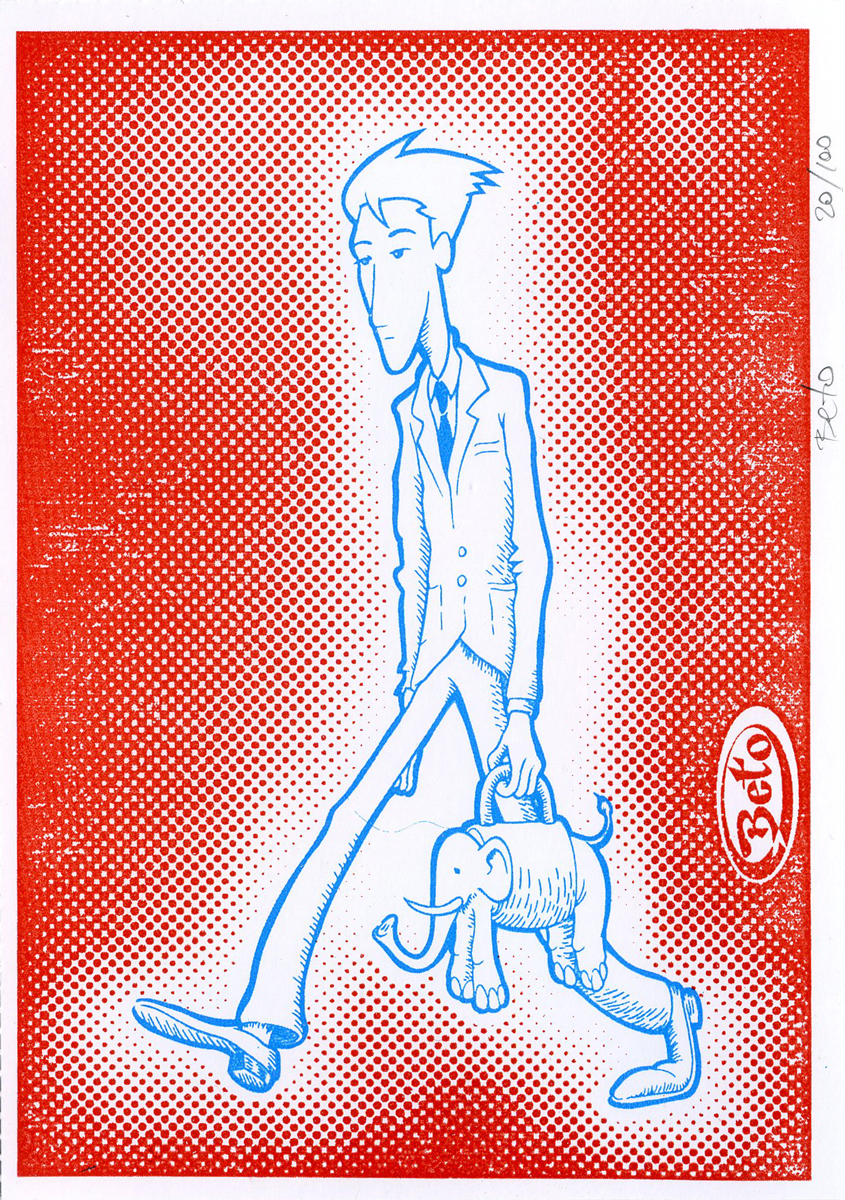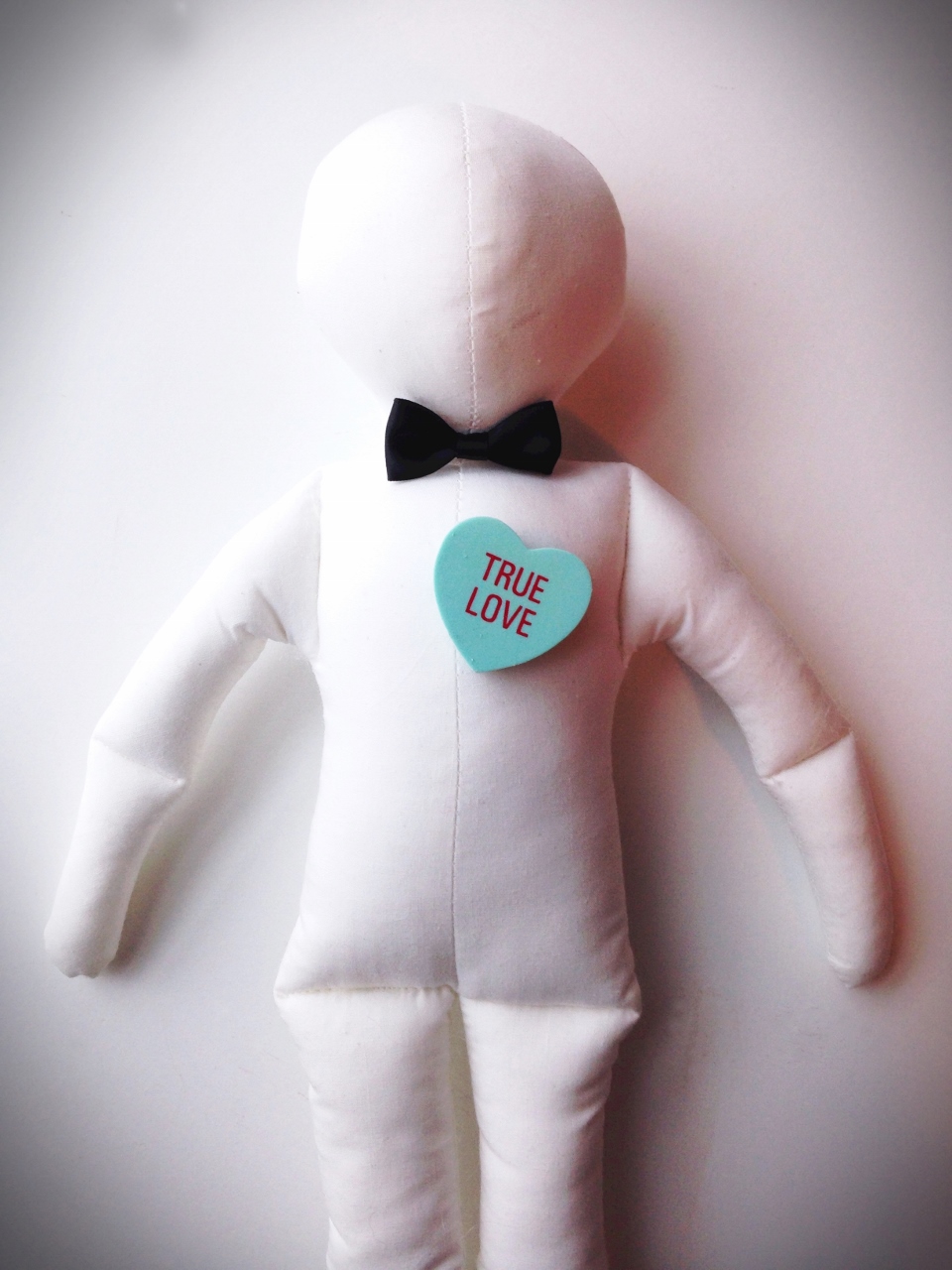Photo by silkeybeto/Flickr
By Laurie Graff
“Well, I can see this afternoon’s going steadily downhill,” said my online date.
We were but twenty minutes in, and he happened to be right. I mean that, literally. What were the odds, but there I was in Riverside Park with a Jewish man from the Upper West Side, in publishing no less, and he turned out to be for Trump.
Our email exchange had been sparse. He just asked to meet. I didn’t ask questions. I just wanted to go. I used to kiss a lot of frogs. Then dating moved online. I now delete a lot of toads. Yet I felt all flushed when his face popped up on my screen. His profile, smart and to the point, matched the twinkle in his eye. He was a reader. Someone curious. Creative. He liked riding his bike and long summer drives. It would be a plus if he had a car, but I was just psyched to see he had hair. I wrote right away. He didn’t write back.
A week went by. I tried him again.
Hi! Are you playing hard to get? If so, I’ll play too… just tell me how! I can’t stop thinking about you. Okay, so maybe that’s not true but I do want to know you, and I would love to hear back. We’re both Upper West Siders, the river’s a favorite spot and the weather might actually be getting nice….
We made a plan to meet Sunday. He suggested one-thirty at the river. My class at the gym ended at one. I thought we could walk down together. Swing by Zabar’s café and get something to eat at the picnic table, on the new dock. He agreed. That morning, before heading out, I checked my email.
A slight change of plans… Instead of meeting at 1:30 on Broadway, I’ll meet you at the dock at 2.
All through the class I wondered what was up. On the one hand it seemed insignificant, but online dating was like a chess game. Every move meant something. Perhaps he planned to ride his bike, or maybe he knew wouldn’t be hungry. But I was, and made sure to eat before I arrived which (uncharacteristically) was precisely on time. At 1:59 I cut through the Boat Basin where, from the top of the patio, I saw him in the distance. He was leaning over the wood railings, looking out at the river, contemplating the cloudy Hudson. My heart and head connected as I thought, oh my, he’s cute.
That hardly ever happened, and I dropped my concerns rushing past all the people down to the dock. “Hi,” I waved. “It’s Laurie! Hello!”
“Hi!” He shook my hand. He smiled. “How was Pilates?”
We began chatting away as we checked out the boats and each other. It was always strange to come face to face with the live, 3-D person ordered up online. It was kind of like unwrapping a package from Amazon on an item whose size and color you gave an educated guess, and hoped would work in person.
“You want to walk?” he asked, pointing north on the promenade.
We were walking and talking. Getting-to-know-you talk. Trading questions with snapshots of answers. Conversation was easy, and he was easy on the eyes. I liked his black tee shirt and North Face pullover. He looked nice. He was warm. I’d go as far to say he was a mensch. Could I have met somebody?
“So where’s your office?” I was really happy to hear he still worked. Besides which, it was interesting to have met a man on the production side of magazines. “You know, there’s a Chinese place in a brownstone right across the street from you, seems very Mad Men-esque. White linen tablecloths. Art. I always wanted to go there. Maybe we could meet for a lunch special?”
Just so you know, for me that was a big deal. To signal, early on, I hoped to see him again. That I wanted to. He, meanwhile, was scrunching his face giving thought to the Chinese food. I recalled his profile saying he was a simple burger and jeans type guy.
“You should go if you want to try it,” he finally said, taking the lunch date off the table. But he continued to ask all about my work and he was attentive, so I resisted reading beyond the moment. Maybe he didn’t even take lunch, I thought, and bulleted through my years as professional actress, freelance publicist, and published author.
“So how do you get your health insurance?”
After saying I’d written three published novels you’d think the next question would be, “What are they?” But we were dating in the twenty-first century and, considering my chicklit titles, I actually figured this to be the safer question.
“Obamacare,” I said. “Fourth year. I was covered for twenty-three years through actors’ unions, and then through the Author’s Guild,” I explained, because it sounded substantial. “Then all the groups were disbanded so everyone’s on their own. It’s been good, but who knows what’s going to happen now. It’s all such a mess, right?”
I thought he’d jump right in. Only he did not even answer.
“It’s all like a mess, now. Don’t you think?” Gosh, people in steady jobs really had no clue what it took to freelance and find a plan every December. “Don’t you think it’s all like a big mess?”
He stopped walking to plant himself before he said, “I voted for Trump. I’m with him 100%. No resistance, no regrets. Behind him all the way.”
He whaaaaat?
His face deadpan, he rattled off that speech like an actor in a play. He had to be pulling my leg.
“Are you serious?”
“Yes,” he said. Seriously.
“Why?”
“Anything’s better than eight years of Obama,” he said, while I neglected to point out that Hillary, not Obama was the one who’d been running.
“I’m just… shocked.”
“Why would you be shocked?”
“Did you ever hear him speak?” I asked. I could practically see the air letting out of my balloon. “I just don’t ever meet anybody that’s, uh… for him. Especially here,” I pointed to Riverside Park as proof positive of the Democratic society I knew to exist on the Upper West Side where like-minded folk commiserated in the gym, in stores, on the subway and the streets. What in the world possessed this guy?
He resumed walking, so I followed. But now I could not look him in the eye. Instead, I looked down at the pavement, processing how this was about to change everything. From that moment on it was just a countdown to the end, and I passive-aggressively decided to let him take us there.
“Obama single-handedly destroyed the entire medical industry for the five percent of people who didn’t have health insurance.”
Obama? Again? The five percent didn’t count? Was that number even accurate? I’m the worst when it came to having data at my fingertips. Sometimes I memorized one stat, just to have something to pull out in these situations. I knew that 88% of the Upper West Side voted for Hillary. How’d I wind up on a date with one of the12% that was acting like the one percent?
“The problem’s with the insurance companies,” I said. “The problem is the greed. And people can’t navigate it alone. We need the groups so it’s easy for everyone to buy. Then there’ll be more people participating and costs will go down.”
“The insurance companies want to do it but —”
“But what? The government won’t let them?”
“That’s right.”
Fiddle dee dee, I thought, and rolled my eyes, remembering the first time I saw Gone with the Wind. Scarlett only wanted to have fun at the barbeque, but all the men could discuss was war, war, war!
“Do you read?” he asked.
Do you? I wondered. But he thought I was reading fake news. And I knew that he was.
“Okay, healthcare aside,” I said, intent on staying calm, channeling my inner Erica Kane, the vixen from All My Children whose mere tone could sweeten the saltiest of statements. “What about guns? What about LGBT? What about the planet? What about women’s rights, immmigra—”
“Well I can see this afternoon’s going steadily downhill.”
No wonder he didn’t want to swing by Zabar’s. Why spend time and money on a lunch that would never get eaten once the political views had been unpacked? Who could he possibly date in this city? More importantly, whom was I going to date?
“I just don’t know how you can get behind someone so stupid?” I asked, the cracks in the pavement deepening as I kept my voice light, and deliberately dug in. “He’s ignorant, coarse, he doesn’t read, he doesn’t understand The Constitution, God, those tweets—”
Boy, I detested online dating. People shudder when I say that, and it frightens other women who feel compelled to meet that way. So let me modify. For me, online dating never works. No matter how promising it seemed there was always some insidious thing I’d have never imagined that appeared when we met in person. I could never love a man whose ideology, to me, so lacked compassion.
Maybe if we’d met during Obama… no! Maybe Bush? Maybe not. Perhaps pre 9-11? I think if we’d met at a happy hour during Clinton we could have had a good fling.
We walked in silence, little more than a few feet, when he saw an opening to the park at 90th Street.
“I’ll walk you out,” he said, but a moment later changed his mind. “Better yet, I’ll leave you right here.”
I did a pivot, quickly walking out and away.
“Nice to meet you,” I heard behind me.
Now, there’s an alternative fact.
•••
LAURIE GRAFF is the author of the bestselling You Have to Kiss a Lot of Frogs, Looking for Mr. Goodfrog, and The Shiksa Syndrome. A contributor to columns and anthologies, the former actress is also a produced and published OOB playwright. Laurie lives and works in New York City. Her new novel, Licked, is up for sale. Visit her website and ‘Like’ her on Facebook.


 Follow
Follow

